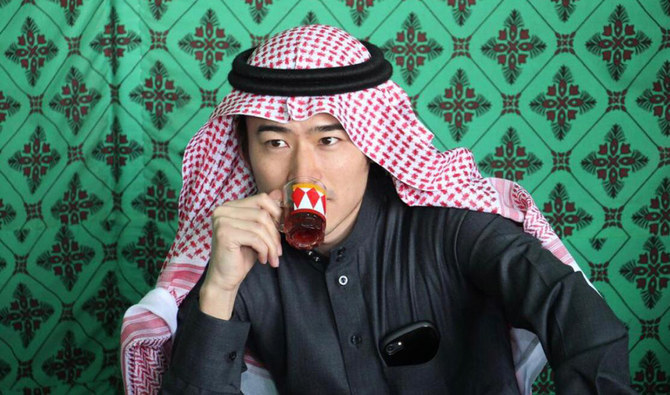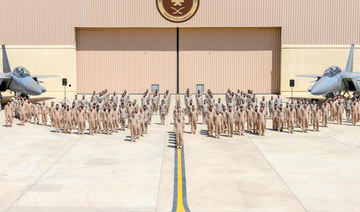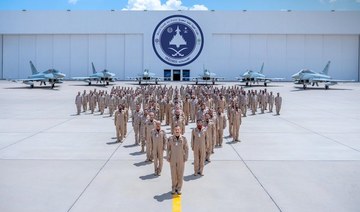RIYADH: Riyo Ishikawa, 28, had completed high school education in Japan when he was spurred by his interest in the cultures of other countries to join the Arab Islamic Institute in Tokyo to teach Arabic to Japanese citizens.
From there, his passion for Arabic led him to travel to Arab countries, notably Egypt and Saudi Arabia, to learn and master the language that seemed to occupy his mind constantly.
Ishikawa taught Arabic at various language institutes in Egypt, thanks to the recommendation of one of his teachers at the Arab Islamic Institute in Tokyo.
Then he moved to Saudi Arabia, where he joined the Arabic-language department of the College of Arts at King Saud University in Riyadh. He embraced Islam and settled down in the Kingdom.
His story is exemplary of the contribution of the Arab Islamic Institute in Tokyo to the strengthening of cultural ties between Saudi Arabia and Japan.
It is the only institution of its kind in Japan that gives individuals an opportunity to enroll in intensive programs in Arabic by teachers specialized in the language.
The institute also regularly offers introductory lectures and religious seminars on Arab culture and Islam.
Dozens of Japanese students take advantage of this program every year by completing their courses in Arabic studies.
The origins of the Arab Islamic Institute in Tokyo dating back to the official visit to Japan by the late King Faisal in 1971, which boosted relations between the two countries.
Following the successful visit, the Saudi government decided to present a gift to the Japanese people that could make a lasting impact.
In 1983, the Arab Islamic Institute in Tokyo, affiliated with the Imam Muhammad bin Saud Islamic University in Riyadh, came into existence.
Since its inception, the institute has sought to fulfill its foundational goal by conducting courses that offer local people an opportunity to learn Arabic for free.
Ishikawa said from the moment he commenced his studies in Egypt, he realized that mastering Arabic was no mere academic exercise.
It would require him to engage deeply with Arab people so he could get adequate practice and develop fluency in the language.
To Ishikawa, mastering Arabic was a great challenge not just because it is among the languages considered by the US Foreign Service Institute as “super-hard.”
He realized that Japanese and Arabic differ significantly in their structure of grammar and spelling.
But this led him to redouble his effort to master Arabic. He enrolled in three language-education institutes while in Alexandria, before moving on to Saudi Arabia to perfect his command of Arabic.
During this time, the persistence that Ishikawa had shown in learning the Arabic language and literature began to show in his efforts to develop a grasp of classical Arabic poetry.
He said the reason behind his new interest was the fact that Arabic poetry uses classical vocabulary, as opposed to the colloquial Arabic used in daily conversations across the Arab world.
During the course of his journey from Japan to Saudi Arabia via Egypt, he was overwhelmed by the tolerance he saw in the Islamic faith, and by the values, it advocated. He decided to embrace Islam and change his name to Osama Ishikawa.
























